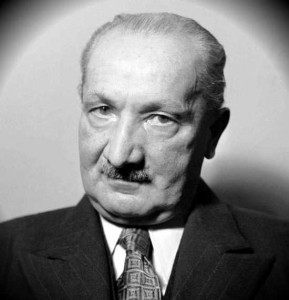 Almost 80 years ago, Edmund Husserl complained about a deep crisis that modern science undergoes, in spite of all its recent achievements.
Almost 80 years ago, Edmund Husserl complained about a deep crisis that modern science undergoes, in spite of all its recent achievements.
Almost at the same time, Martin Heidegger claimed that the project of modern science, unlike that of ancient philosophy, is to gain complete technical control over nature rather than theoretical knowledge about it, and that a deep cleft between science and original philosophy has thus opened up. I will argue that both diagnoses are correct if seen synoptically, and that the condition of science has worsened since
then.
Furthermore, I will defend Husserl’s view that the crisis of modern science is at least to a large extent caused by the crisis of metaphysics, from the late middle ages to the present day, and I will point how this thought may help to understand even those scientific developments that Heidegger had in view.
Hence, a critical comparison of Husserl’s and Heidegger’s view on the crisis of science will provide us with a more comprehensive understanding of the achievements and shortcomings of modern science.
Author Prof Henning Tegtmeyer
